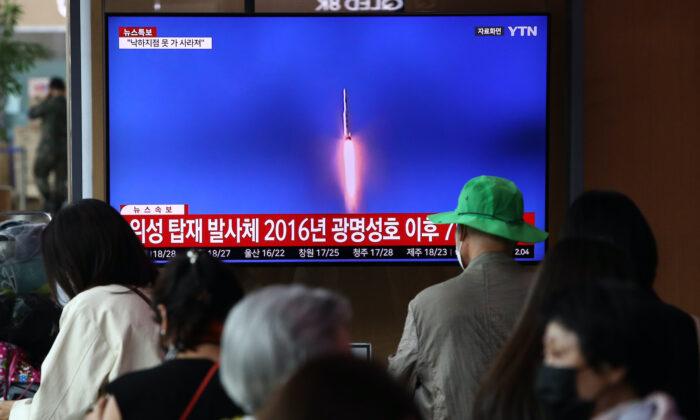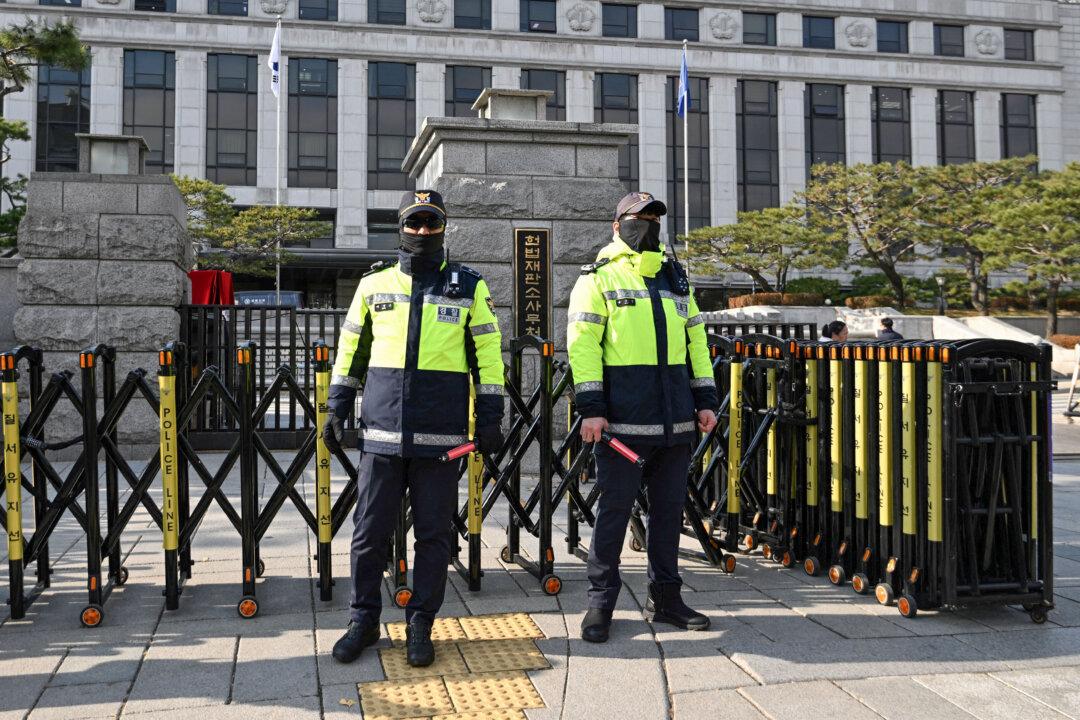North Korea must be made aware of the “consequences” of its escalatory behavior after its recent spy satellite launch sparked tensions in the Korean Peninsula, the U.S. nuclear envoy said on June 4.
“It’s important to make clear to the DPRK that its escalatory behavior has consequences,” he told YNA, referring to North Korea by its official name: the Democratic People’s Republic of Korea (DPRK).
“The DPRK has increasingly engaged in threatening and irresponsible rhetoric, including by characterizing some of its missile launches and other military activities as trial runs for the use of tactical nuclear weapons.”
He said the United States will maintain close consultations with South Korea, Japan, and other allies on “how to best engage the DPRK, deter aggression, and coordinate international responses” to North Korea’s violations of U.N. Security Council resolutions.
“Any nuclear attack by the DPRK against the ROK will be met with a swift, overwhelming, and decisive response,” the envoy said. ROK is the acronym for South Korea’s official name: the Republic of Korea.

Kim also urged China, North Korea’s closest ally, to use its influence to rein in North Korea’s provocative actions and to fulfill its obligations as a Security Council member in strengthening sanctions on North Korea.
“It is unfortunate that, in recent years, the international community has not been able to speak with one voice in condemning the DPRK’s reckless and destabilizing activity,” he said.
China and Russia—which are both permanent members of the U.N. Security Council—vetoed a U.S.-led resolution in May 2022 that would have imposed new sanctions on North Korea over a spate of intercontinental ballistic missile launches.
At the council briefing on June 2, China’s U.N. ambassador, Geng Shuang, said the recent U.S.–South Korea Washington Declaration and the planned visit of a U.S. strategic nuclear submarine to the Peninsula have “seriously reinforced the DPRK’s sense of insecurity.”
North Korea’s Failed Satellite Launch
The council briefing was held after North Korea’s failed attempt to launch a spy satellite into space on May 31. The rocket reportedly crashed into the West Sea of Korea because of the “abnormal start of the two-stage engine.”Japan and South Korea issued emergency alerts in certain areas after detecting the launch. Japan warned beforehand that it would shoot down North Korea’s rocket if it entered its territory.
An analysis of the salvaged debris will provide insight into various aspects of North Korea’s “space launch vehicle” and satellite technology, said Yang Uk, an analyst at the Asan Institute for Policy Studies in Seoul.
Kim said the regime doesn’t see the need for dialogue with the United States.





